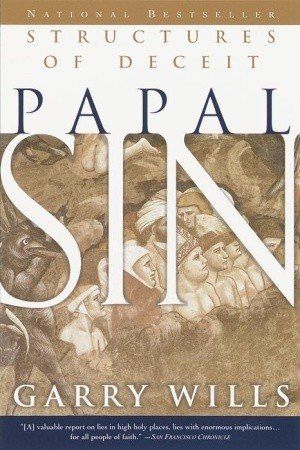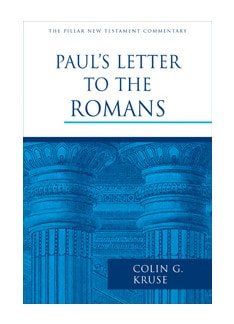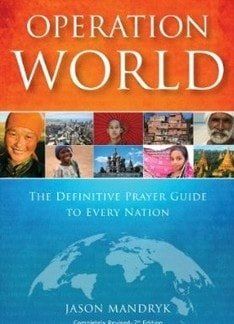Garry Wills is a Roman Catholic of liberal theological persuasion, who in some areas reasons like a humanist. His recent book entitled Papal Sin: Structures of Deceit is informative and readable
He divides his subject into two categories: ‘Historical dishonesties’, (pp. 11 to 70), and ‘Doctrinal dishonesties’ (pp. 71 to 230). The rest of the book is devoted to the quest for truth.
Absolute power
The author is a professor of History at Northwestern University in the USA. He introduces his subject by quoting Roman Catholic Lord Acton’s famous axiom, ‘Power tends to corrupt, and absolute power corrupts absolutely’. When Acton said that, he was speaking of papal absolutism!
But gone are the days when a dissolute teenager could be elected pope (John XII of the tenth century) because of family connections, and die a decade later in the bed of a married woman.
Andrea Orcagna (c.1308-1368) painted the ‘Last Judgment’ and depicted a papal crown in the fires of hell. (That part of Orcagna’s painting forms the dust cover of Wills’ book.)
While sexual scandal, assassination, and Mafia-like corruption are not typical of the Vatican now, ‘there is still a gap, a widening lacuna … between the teaching organs in Rome and the laity in the pew’.
This statement is important because there are large numbers of believing Roman Catholics (some who claim to be evangelical) who blithely ignore Rome’s doctrines, as Wills ably demonstrates.
These Catholics would not dream of leaving mother Church. They simply accept passively that there is a lot wrong with the papacy but there is nothing they can do about it.
They reason that at least their Church is the historic true Church and therefore safer and better than Protestantism, which is fragmented and riddled with its own problems.

Historical dishonesties
This part of the book deals with the Jews and the holocaust. It could be read alongside the recent book by John Cornwell, Hitler’s Pope – the Secret History of Pius XII (Viking).
In the latter, Cornwell (a Catholic) points to the fact that the Roman Catholic Church in Germany was strong enough to have quashed the Nazi movement, so that there might never have been a Jewish holocaust.
But Pope Pius XII, Eugenio Pacelli, was anti-semitic and in league with Hitler, whom he saw as a bulwark against Communism. Pacelli is an embarrassment to Rome, as is the whole saga of sinful silence over the disgraceful treatment of the Jews from 1933 to 1945.
A Roman Jewish woman who survived Auschwitz asserted: ‘Pacelli was an anti-semitic Pope, a pro-German Pope. He didn’t take a single risk. And when they say the Pope is like Jesus Christ, it is not true. He did not save a single child. Nothing!’
Debacle
How does the Catholic Church handle this debacle? A major attempt was made to address the issue at Vatican II (1962-1965). After much difficulty the following final statement was made:
‘True, authorities of the Jews and those who followed their lead pressed for the death of Christ (cf. John 19:6); still, what happened in his passion cannot be blamed upon all the Jews then living, without distinction, or upon the Jews of today.
‘Although the Church is the new people of God, the Jews should not be presented as repudiated or cursed by God, as if such a view followed from the holy Scripture… Besides, as the Church has always held and continues to hold, Christ in his boundless love freely underwent his passion and death because of the sins of all men, so that all might attain salvation’ (p. 25).
Wills points out that it is astonishing that the above statement contains no recognition of past persecution by Roman Catholics, as in the Inquisition, nor any expression of sorrow and repentance from the Church.
Attitude to Jews
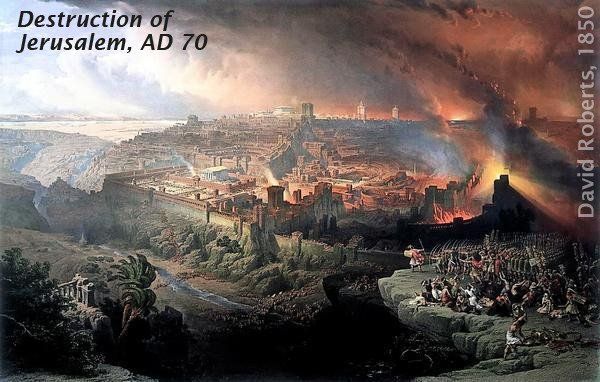
But before we, as Evangelicals, pass judgement on others, I challenge you to define how you regard the Jews! I suggest a biblical response should be along the following lines.
It is clear from the events leading up to the destruction of Jerusalem in A.D. 70 that the wrath of God did fall on that generation of Jews responsible for the rejection and crucifixion of Jesus.
In 1 Thessalonians 2:16 we read: ‘The wrath of God has come upon them at last’. Yet we do not exult in that, but rather weep with Jesus who saw the A.D. 70 disaster coming and described it (Luke 19:41-44). The attitude that we should cherish for all Jews, wherever they may be found, is expressed by the apostle Paul in Romans 9:1-5.
The Nazi movement was diabolical and the holocaust was part of that wickedness. As believers we are utterly opposed to the persecution or victimisation of any part of the human race. We oppose any racism, whatever its form.
Wills maintains that the Roman Catholic hierarchy has glossed over the Jewish holocaust and the Jewish question generally. Part of that gloss has been to canonise Edith Stein, a Jewish woman who converted to Catholicism and died a Carmelite nun in Auschwitz.
Wills’ concern here is the use of deceit by Catholicism to establish good impressions in order to cover bad sagas. Edith Stein died for no other reason than she was Jewish. She never performed a ‘miracle’ (normally a condition of Roman Catholic canonisation).
Doctrinal dishonesties
Contraception
In 1968 the papacy issued an encyclical letter on contraception which Wills describes as the most disastrous document of the century. The ban on contraception is entirely lacking in biblical authority. He shows well that the attempt to use the Onan passage (Genesis 38:9) to endorse the papal position is ill-grounded and absurd.
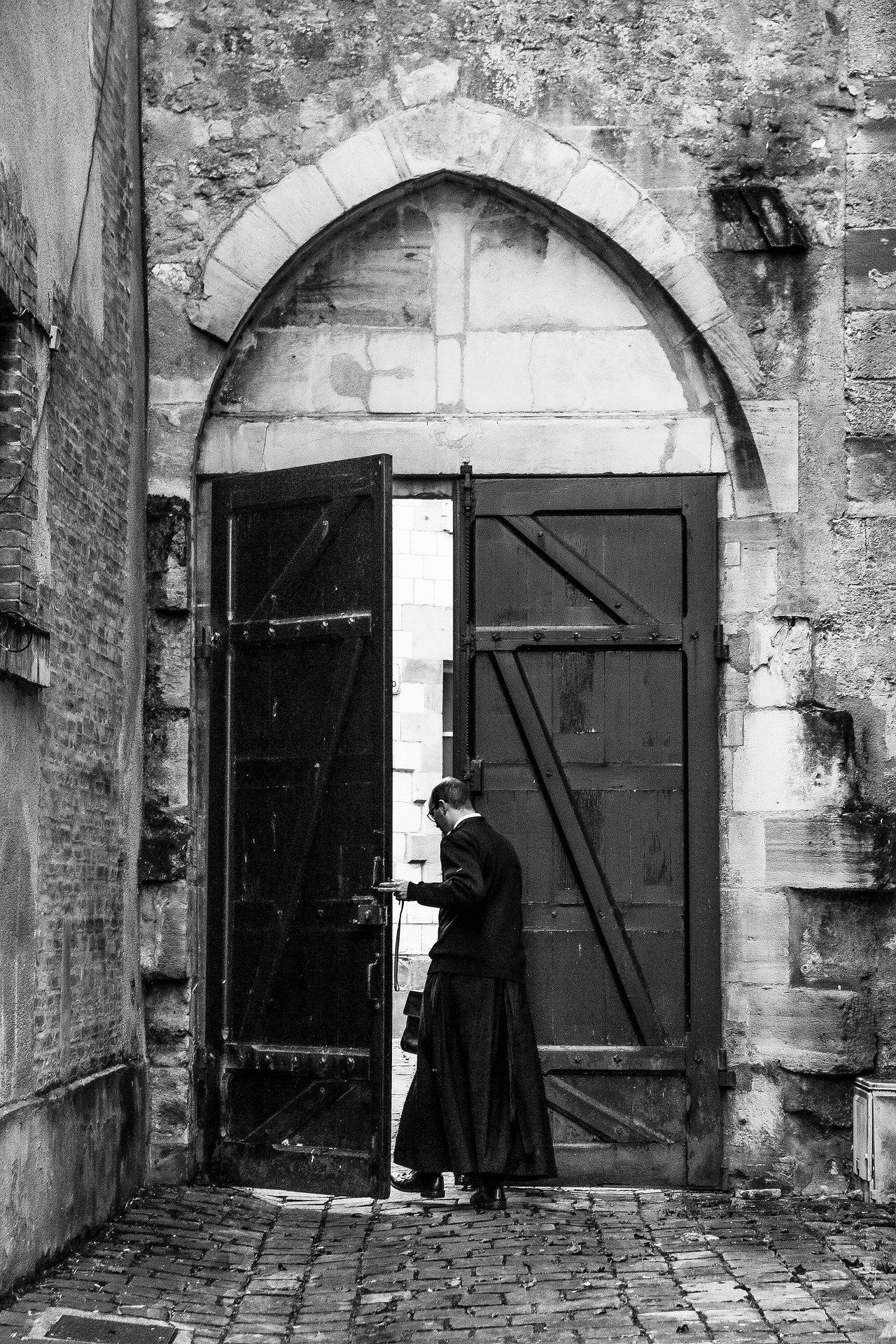
The Priesthood and the mass
This is perhaps the most significant part of Wills’ work. He completely dismantles the doctrine of the Roman Catholic priesthood.
He shows that there is not a word in the New Testament to support the idea of a priest consecrating the bread and wine. In fact there is no case whatsoever for a special order of priests in the New Testament, outside the priesthood of all believers.
Wills goes further than any Protestants I have read on the subject of the mass because he outlines how the one error came into being to support the other, namely, the sacred order of priests able and qualified to perform the magic of transubstantiation (pp. 132ff).
The Priesthood and celibacy
Wills further demonstrates that there is no basis for priestly celibacy in the New Testament. It makes unpleasant reading, but he goes on to show that celibacy has led to disastrous consequences.
In 1990 a conservative estimate showed that about 20% of priests were sexually active with women at any one time, and 20% were homosexually active (p.186).
Wills tackles the terrible and widespread problem of paedophilia in the Roman Catholic Church. The way in which this has festered and been covered up is criminal. A survey showed that from 1983 to 1987 an average of one case a week was reported. Not one diocese in America has been without its paedophilia case.
Even worse, whole cultures of paedophilia have been uncovered (see p.175 ff). Alongside this is the problem of ever diminishing numbers applying for the priesthood. This was confirmed in England by Cardinal Cormac Murphy O’Connor who, at a gathering of priests on 4 September, made headlines with the claim that Christianity is almost vanquished in Britain.
The cardinal spoke of the damage and shame brought to his church by the scandal of paedophile priests. He said that priests, and especially bishops, had not been sufficiently aware of the ‘insidious’ and ‘pathological’ nature of child abuse and had not treated all allegations with the seriousness they merited (The Times, 6 September 2001).
The cardinal simply makes admissions, but Wills takes off the lid off; and what is seen inside is horrendous!
Marian politics

Wills demonstrates that the Marian doctrines of Catholicism have been used to further the agendas of the papacy. ‘Modern Popes tell priests to think of themselves as virgins consecrated to the Virgin’ (p. 204).
Wills repudiates the doctrine of the Immaculate Conception (p. 210 ff). ‘When the Vatican Council argued in 1859 that the Pope was not infallible, the Pope himself responded by asserting that he had already proved his infallibility in the formula that he had defined as the Immaculate Conception’ (p. 215).
Disappointment
In this review I have limited myself to major issues raised in this volume. Garry Wills is concerned for truthfulness and that is commendable. He exposes errors that have caused great personal harm and damage to innumerable souls, as well as other errors of a more general character.
There is a disappointment, however, in the fact that the book gives no idea of the saving power of the gospel of Christ and of justification by faith alone. The author stoutly rejects the biblical doctrine of substitutionary atonement (p. 307).
Yet the work is valuable for the information it provides, which has been well researched and documented. The author’s grasp of history is excellent. Sadly, the spiritual thrust of his writing is minimal.

